- Home Page
- Company Profile
-
Our Products
- Water Bar
- Gate Seals
- Elastomeric Bearing Pads
- Plastic Products
- Light Duty Industrial Belts
- Engineering Plastic Components
- HDPE Sheets And Rods
- Nylon Sheets and Rods
- Phenolic Sheets
- PolyAcetal Sheets And Rods
- PolyPropylene Sheets And Rods
- PVC Rigid Sheets
- Rubber Vacuum Rings
- Silicone Vacuum Rings For Laminated Glass
- Angle Shaped Seals
- Flat Wedge Seal
- Musical Note Seals Hollow Bulb
- Solid Bulb Musical Note Seals
- Double Stem Seals
- Double Bulb Seal
- Silicon Rubber Pipe
- Silicone Rubber Products
- Polyurethane Products
- Bellows & Expansion Joints
- Inflatable Seals & Insert Seals
- Vacuum Suction Bags & Rings
- Seals for Hydraulic & Pneumatic Cylinders
- Water Stopper
- Oil Seals & Shaft Seals
- Flexible Storage Tanks
- EPDM Membrane
- Moulded Rubber Products
- Conveyor Belts
- Diaphragms
- Electrical Insulation Materials
- Solid Rubber Tyres
- UHMW Sheets
- Polystyrene Foam Board
- Extruded Rubber Products
- Rubber Sheet
- Rubber Seal
- Cast Nylon Products
- Molded Rubber Products
- Expansion Joint Filler Board
- Bio Inflatables
- Engineering Plastics
- Hoses
- Construction & Infrastructure Products
- PTFE Products
- Earthmoving Machinery Parts
- Bearing Pads
- Extruded PVC Product
- Industrial Products
- Polymer Based Expansion Joint Filler Board
- Gate Seal - PTFE Cladded
- Latex Sheet Esmarch Bandage
- Silicone Rubber Products
- Hollow Mats
- Gate Seal Double Bulb Type
- Silicone Cord
- Polystyrene Joint Filler Board
- Polyisoprene Sheet Medical
- Bitumen Impregnated Expansion Joint Filler Board
- Silicone Rubber Sleeves
- Sponge Sheet - Silicone
- Rubber Seal
- Polyisopene Sheet Drape
- Expanded Polystyrene Board
- Wedge Seal
- O ring Kit Red Box
- Expansion Joint Filler Board
- Silicone Profile
- O ring Kit - Blue Box
- Dam Gate Seals
- Anti Skid Rubber Rolls
- Bonded Seal
- Braided Silicone Tube
- Anti Skid Rubber Mats
- Silicone Rubber Tubes
- Nitrile NBR Rubber Insulation Sheets
- Rubber Sheets
- Hydraulic Seals
- Transformer Accessories
- Insert Seal
- Rubber Gasket
- Gas Sampling Bladders
- Extruded Rubber Profiles
- Biofloc Fish Tank
- Rubber Sealing Ring
- Bridge Expansion joints
- Latex Sheet
- Dowty Seals
- Electrical Insulation Mats
- Helium Gas Bag
- Metallic Gasket
- Backer Rod
- Polysulphide Sealant
- Dock Fender
- Kevlar Rope
- More Info.
- Contact Us
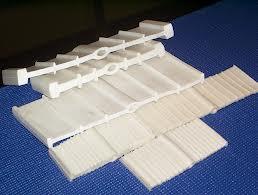
PVC Water Stopper
60.00 INR/Meter
Product Details:
- Material PVC
- Type Water Stopper
- Size 6 Inch to 20 inch
- Thickness 4 to 12 Millimeter (mm)
- Product Type PVC Water Stopper
- Color White
- Application Industrial
- Click to view more
X
PVC Water Stopper Price And Quantity
- 60.00 INR/Meter
- 25 Meter
PVC Water Stopper Product Specifications
- PVC Water Stopper
- Smooth Surface
- > 60 shore A
- Water Stopper
- 6 Inch to 20 inch
- 4 to 12 Millimeter (mm)
- Industrial
- PVC
- White
- 25 Meter (m)
PVC Water Stopper Trade Information
- kolkata
- Cash on Delivery (COD), Cash in Advance (CID), Cash Advance (CA)
- 500 Meter Per Day
- 8-10 Days
- Yes
- Free samples are available
- Carton Box
- Australia, South America, Western Europe, Middle East, Africa, Asia, Central America, Eastern Europe, North America
- All India
Product Description
A PVC water stopper is a type of waterproofing material that is used to prevent the passage of water through expansion joints, construction joints, and other areas where water infiltration is a concern.
It is typically made from high-grade PVC material that is resistant to chemicals, weather, and ultraviolet radiation. PVC water stoppers come in different shapes, sizes, and designs, depending on their specific application and the requirements of the construction project.
The installation of PVC water stoppers is essential in various applications, such as in dams, tunnels, bridges, water treatment plants, and other infrastructure projects. The water stopper is usually embedded in concrete to provide a watertight seal, which ensures the longevity and durability of the structure.
In summary, PVC water stoppers are crucial components of waterproofing systems, and they play a vital role in preventing water from seeping into structures and causing damage.
PVC Water Stopper Features:
PVC water stoppers offer several features that make them ideal for use in waterproofing applications. Some of these features include:
1. High resistance to chemicals: PVC water stoppers are highly resistant to chemicals, making them suitable for use in areas where chemical exposure is a concern.
2. Excellent weather resistance: PVC water stoppers are capable of withstanding extreme weather conditions, including extreme heat, cold, and UV radiation.
3. Superior durability: PVC water stoppers are long-lasting and can withstand the wear and tear that comes with use in construction projects.
4. Flexible and easy to install: PVC water stoppers are flexible, making them easy to install in various shapes and sizes.
5. Good resistance to hydrostatic pressure: PVC water stoppers are capable of resisting hydrostatic pressure, which is the pressure exerted by standing water.
6. Environmentally friendly: PVC water stoppers are an environmentally friendly option for waterproofing applications because they can be recycled.
In summary, PVC water stoppers offer a range of features that make them suitable for use in various construction projects where waterproofing is necessary. Their excellent chemical and weather resistance, durability, flexibility, and ease of installation make them a popular choice for waterproofing systems.
PVC Water Stopper Applications:
PVC water stoppers are used in a variety of applications in the construction industry where waterproofing is essential. Some of the most common applications include:
1. Dams and canals: PVC water stoppers are used to prevent water from leaking through joints and seams in dams and canals.
2. Tunnels: PVC water stoppers are used to provide a watertight seal in tunnels, preventing water from infiltrating and damaging the structure.
3. Swimming pools: PVC water stoppers are used to create a seal between the pool wall and the pool deck, preventing water from leaking out.
4. Water treatment plants: PVC water stoppers are used to provide a watertight seal in concrete tanks, ensuring that no water escapes.
5. Bridges: PVC water stoppers are used to seal expansion joints in bridges, preventing water from penetrating the structure and causing damage.
6. Roofing: PVC water stoppers are used to seal the edges of flat roofs, preventing water from seeping under the roofing material and causing damage to the structure.
7. Underground structures: PVC water stoppers are used to seal joints and cracks in underground structures, such as basements and parking garages.
In summary, PVC water stoppers are used in various construction projects where waterproofing is necessary. They are commonly used in dams, canals, tunnels, swimming pools, water treatment plants, bridges, roofing, and underground structures, among others.
FAQs of PVC Water Stopper:
Q: What is the material of the PVC Water Stopper?
A: The material of the PVC Water Stopper is PVC.Q: What are the available colors for the PVC Water Stopper?
A: The available colors for the PVC Water Stopper are White, Black, and Blue.Q: What is the range of sizes available for the PVC Water Stopper?
A: The PVC Water Stopper is available in sizes ranging from 6 inches to 20 inches.Q: What is the hardness of the PVC Water Stopper?
A: The hardness of the PVC Water Stopper is greater than 60 shore A.Q: What is the application of the PVC Water Stopper?
A: The PVC Water Stopper is used for industrial applications.Tell us about your requirement

Price:
Quantity
Select Unit
- 50
- 100
- 200
- 250
- 500
- 1000+
Additional detail
Mobile number
Email


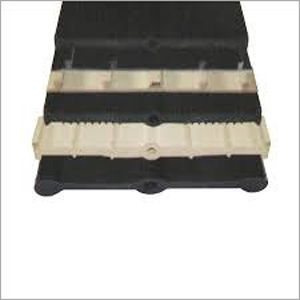
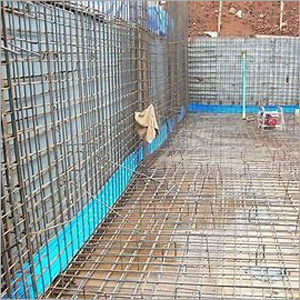
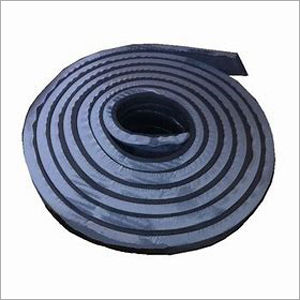
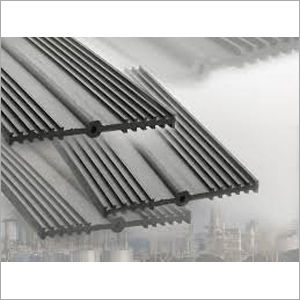
 Call Me Free
Call Me Free
 English
English Spanish
Spanish French
French German
German Italian
Italian Chinese (Simplified)
Chinese (Simplified) Japanese
Japanese Korean
Korean Arabic
Arabic Portuguese
Portuguese